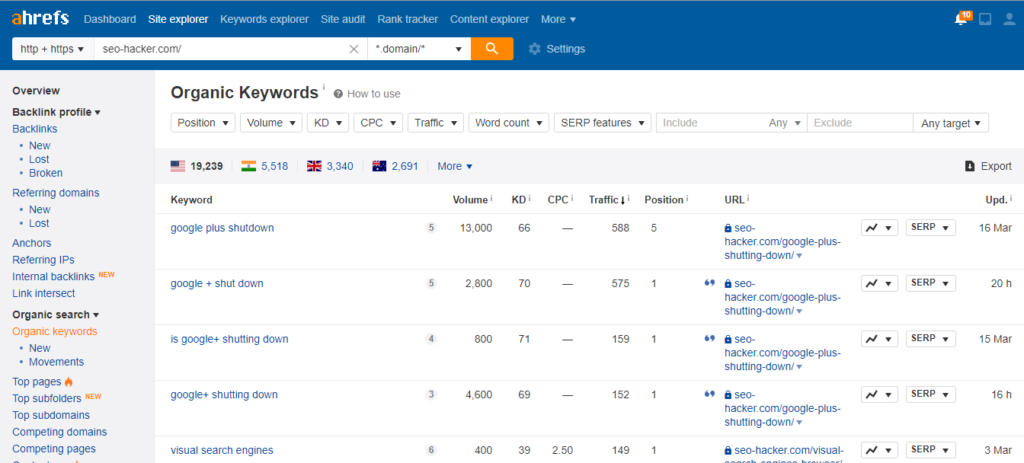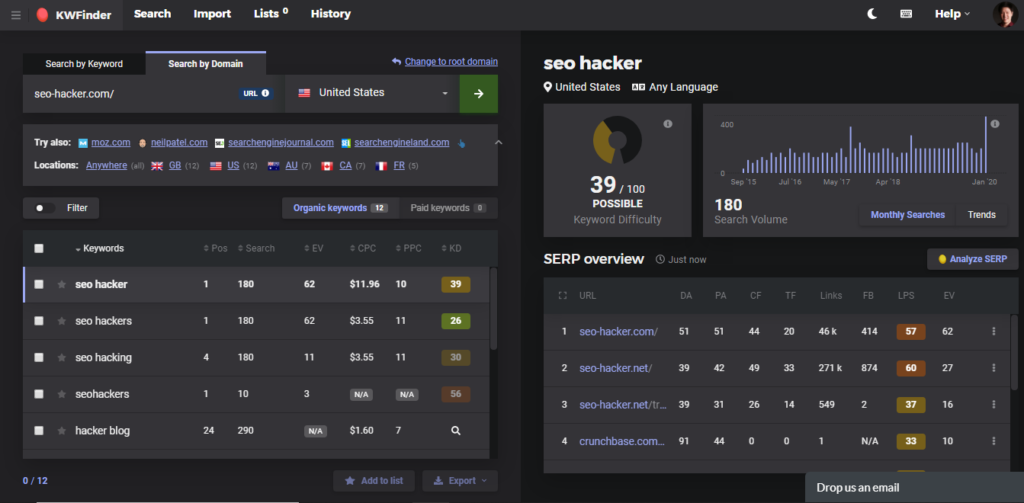How to Do Keyword Research for New Websites
You just started a new website for your business. You poured in a lot of hard work to get it up and after a few weeks, you finally got some sleep. But after a few weeks, your Google Analytics is not looking good. What now?
If you have a new website and you want to get traffic going, you need to rank for keywords. Keyword research is a fundamental SEO process. The keywords that you choose to rank for when you start doing SEO for your new website is going to define your success or failure.
But it’s not as easy as it seems. Let’s say you own a 24/7 fitness gym. Right off the bat, you chose to target the keyword “24/7 gym”. You probably have a zero percent chance of ranking. It’s harsh, but it’s true.
This is where choosing the right keywords is critical.
As a new website, you have to focus on two things – easy wins, but relevant wins.
How, you ask? In this post, I’ll discuss how to get the right keywords for your new website.
Think from the Customers’ Perspective
The first step in finding the right keywords for your new website is to brainstorm and think about how your users could find you. If you already have customers, you could ask them what would be the keywords that they use if they are looking for your business. If not, place yourself in the customer’s shoes and ask yourself – “what keywords would I use?”.
Build a List of Keywords Around your Services
The keywords that you target should be built around the services that you offer. If you have multiple services, you could list down keywords for each service. Let’s say you own an IT company that offers web development, hosting, and cloud management services. You could build keywords for each service to attract more users.
Scout the Competition
Taking a look at the keywords your competitors rank for is one of the easiest ways to get keyword ideas. You could use different SEO tools to help you with this task.
Ahrefs’ Organic Keywords:


If you don’t have tools yet, you could go to your competitors’ websites and take a quick scan of the page titles of their landing page and blog posts. That way, you’ll have an idea of the keywords that they are proactively trying to rank for.
Keep in mind that this is just for getting ideas. Some or maybe most of your competitors might have been doing SEO way before you so they might be ranking for high volume and high difficulty keywords but that doesn’t mean you should go for those as well.
Focus on Low-Hanging Fruits
This is where we put easy wins but relevant wins to action. There are three types of keywords fathead, chunky middle, and long-tail keywords. I won’t delve in too much on these but what you need to know is the higher the volume, the more difficult it is to rank for. The keyword I gave a while ago, ‘24/7 gym’, that’s a fathead keyword or broad keyword. The monthly search volume for this keyword is tempting for sure. But it’s hard to identify the intent of the person searching for these types of keywords.
That’s why for new websites, targeting chunky middle and long-tail keywords are the way to go. Chunky middle keywords are phrases while long-tail keywords are very specific search queries and mostly comes in question form.
The intent of these keywords is easy to identify and the difficulty is much lower than fat head keywords. Theuse are what you want. Using the sample I used a while ago for a fitness gym, I would go for keywords like:
- best 24/7 fitness gym in manila
- affordable 24/7 fitness gym in manila
- what is the best 24/7 fitness gym in manila?
Just with these keywords, you already have an idea that the person searching is ready to purchase a gym membership. And with the right content and high-quality backlinks, you’ll be able to rank for these easily. Also, notice that I placed “manila” in the keyword? Targeting keywords with locations is highly recommended because users tend to search for businesses near them or in a specific area. Since my gym business is in Manila, getting visitors from the United States is not relevant
Easy wins but relevant wins. Take note of that.
Bonus: Keyword Research Tools You Can Use
If you’re starting out using free keyword research tools is fine, but the data you’ll be getting is limited. Google Keyword Planner, for example, shows accurate search data since it’s directly from Google, however, the difficulty is skewed because it shows the difficulty for PPC.
If you’re looking for keyword research tools that will give you more insights that allow you to better analyze competition and help you in identifying winning keywords for your new website, you could check out these tools that I personally use:
- SEMRush – Free 7-day trial
- SE Ranking– Free 14 day trial
- Mangools – Free 10 day trial
